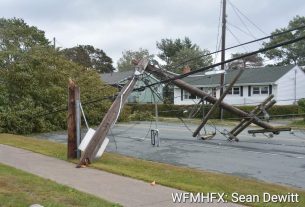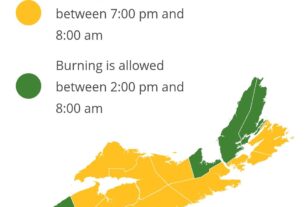**** NSHA Media Release
Staying safe in the heat, ongoing high system demand
As most of the province is under a severe heat warning over the next few days, Nova Scotia Health and Emergency Health Services want the public to be aware of the best ways to keep themselves and their loved ones safe from heat-related illnesses.
Everyone is at risk of a heat-related illness, but particularly seniors and people with pre-existing conditions in which hot temperatures can be dangerous, such as those who have breathing difficulties, heart problems, high blood pressure, kidney issues, or Parkinson’s.
The best ways to prevent heat-related illnesses are by staying hydrated and drinking lots of liquids; limiting physical exertion and taking frequent breaks, or limiting your activities to the early morning or evening when it’s typically cooler outside; and wearing light, loose clothing, including a hat. Remember to arrange for phone check-ins by family, friends, or neighbours in case you need assistance. Take advantage of air-conditioned spaces such as malls, stores or Municipal cooling centres for relief.
Heat exhaustion can lead to heat stroke, and symptoms include weakness, dizziness, headache, nausea, vomiting, rapid pulse, or heavy sweating.
Heat stroke is a medical emergency and the patient needs to get to an emergency department or call 911 immediately. Symptoms of heat stroke include: confusion, disorientation, loss of consciousness, seizures, the person may also stop sweating as they go into heat stroke.
The best treatments for people who are exhibiting these symptoms are to offer water, provide cooling by removing unnecessary clothing, seeking shade or air conditioning, and placing ice packs or cold wet towels on the neck, armpits and groin areas.
It’s important to note that all four Nova Scotia Health zones continue to face significant patient capacity and staffing challenges. This is affecting our ability to provide timely care.
We anticipate patients will experience longer than usual waits for care in emergency departments and for admission from emergency departments into hospital beds.
Nova Scotia Health wants to remind those experiencing an emergency, they should not hesitate to visit the nearest emergency department. Emergency departments at regional hospitals and the QEII Health Sciences Centre are open 24 hours a day, seven days a week.
Some smaller sites experience periodic closures. Any such closures are noted here: https://www.nshealth.ca/temporaryclosures
· The overall emergency system is never closed. This is due to access to Emergency Health Services (for example, 911), telemedicine, and transfers to other facilities across the province.
· Anyone with urgent medical needs should call 911.
· If your health concern is not urgent, we request you contact a family doctor or go to a walk-in clinic.
· For general health advice and information call 811, a service offered 24/7 by experienced registered nurses.
· The Mental Health and Addictions Crisis Line can also be reached 24/7 by calling 1-888-429-8167.
Nova Scotia Health apologizes for the increased wait times in emergency departments and the impacts of these high demands for services on other patients and our health care providers.
We know these past two years have been very difficult for everyone and we continue to ask a lot of our staff and physicians. We are aware of too many situations where our staff have been subjected to abusive behaviour and language, including personal threats. This is not acceptable and is adding to our staffing recruitment and retention challenges.
Please be kind and know we are here to help.




